You’ll be happy to know that eating healthier makes you healthier
A whole load of identical twins went through a food experiment where they tried different diets for several weeks to see what sort of impact it has had on their body.
This wasn’t just for fun, the twins were competing on Netflix show You Are What You Eat – not to be confused with the Gillian McKeith show on British telly in the noughties of the same name where she poked through people’s poo.
You Are What You Eat A Twin Experiment trailer
Credit: Netflix
0 seconds of 2 minutes, 18 secondsVolume 90%
Instead, viewers were promised they’d be able to witness a ‘twin experiment’ where one was put on a vegan diet and the other could eat like an omnivore, meaning they could scoff meat and other animal products.
In this big experiment, many sets of twins took part and afterwards pretty much all of those who took part decided to make a change to their lifestyle after finding that the twin on the vegan diet had a better life expectancy, lower risk of heart disease and a higher sex drive.
Among the pairs of twins were cheesemaking brothers Charlie and Michael, with Charlie going vegan for the purposes of the show.
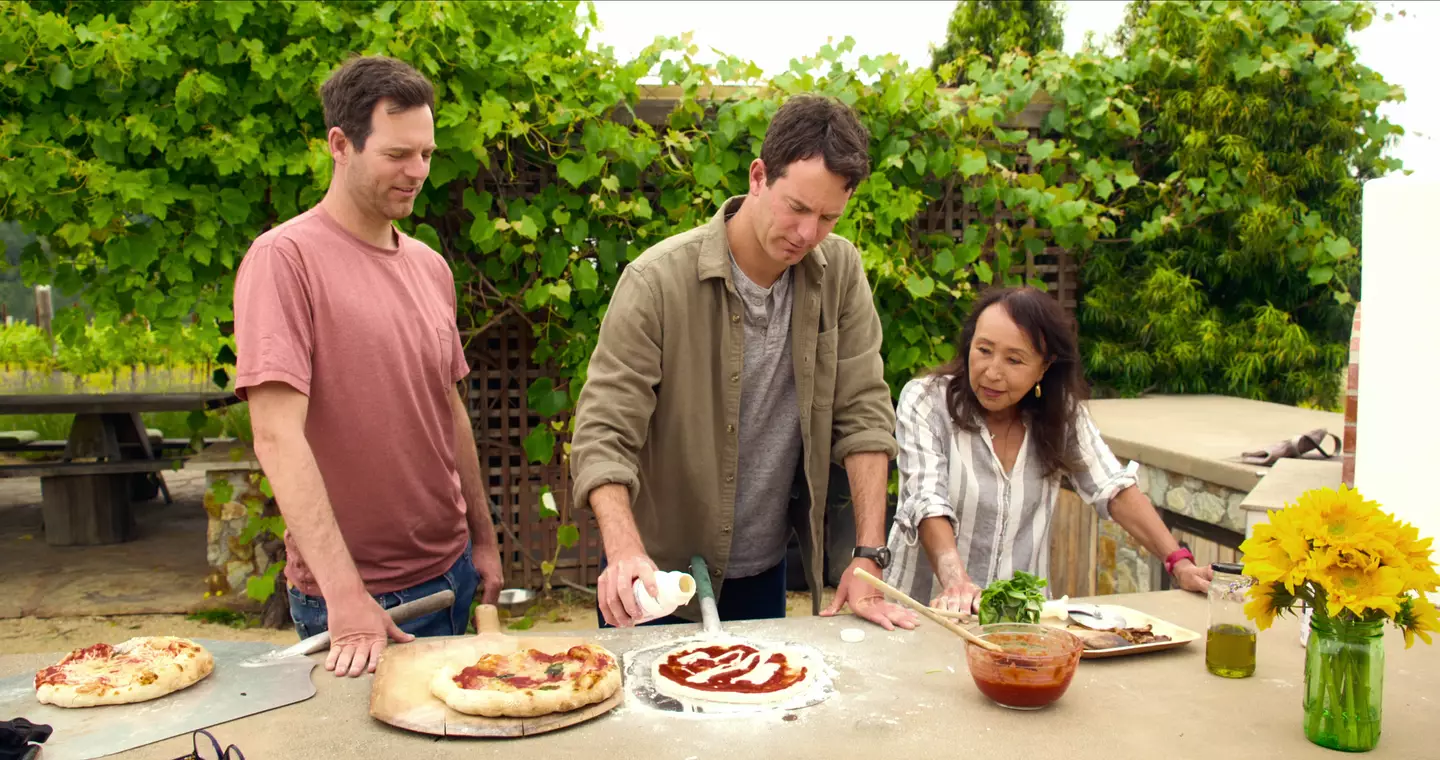
Michael (left) and Charlie (centre) have both drastically changed their diets after the experiment. (Netflix)
Before he’d started he’d been an avowed omnivore, but afterwards he decided to go almost vegetarian as he said that meat was ‘trending off his plate’.
He does still have meat with a few Chinese dishes and soups, but reckons he’s about 90 percent of the way to wrapping up his meat consumption.
Meanwhile, Michael was already a pescatarian before the show and he’s since gone full vegetarian.
Other twins on You Are What You Eat ended up trending away from meat eating as well, with sisters Pam and Wendy staying as omnivores but eating around half the meat they usually chomped their way through in their diets.
Brothers John and Jevon decided their time eating red meat was pretty much up after being on the show, while sisters Carolyn and Rosalyn also stayed as omnivores but decided to phase some meat out of their diets.
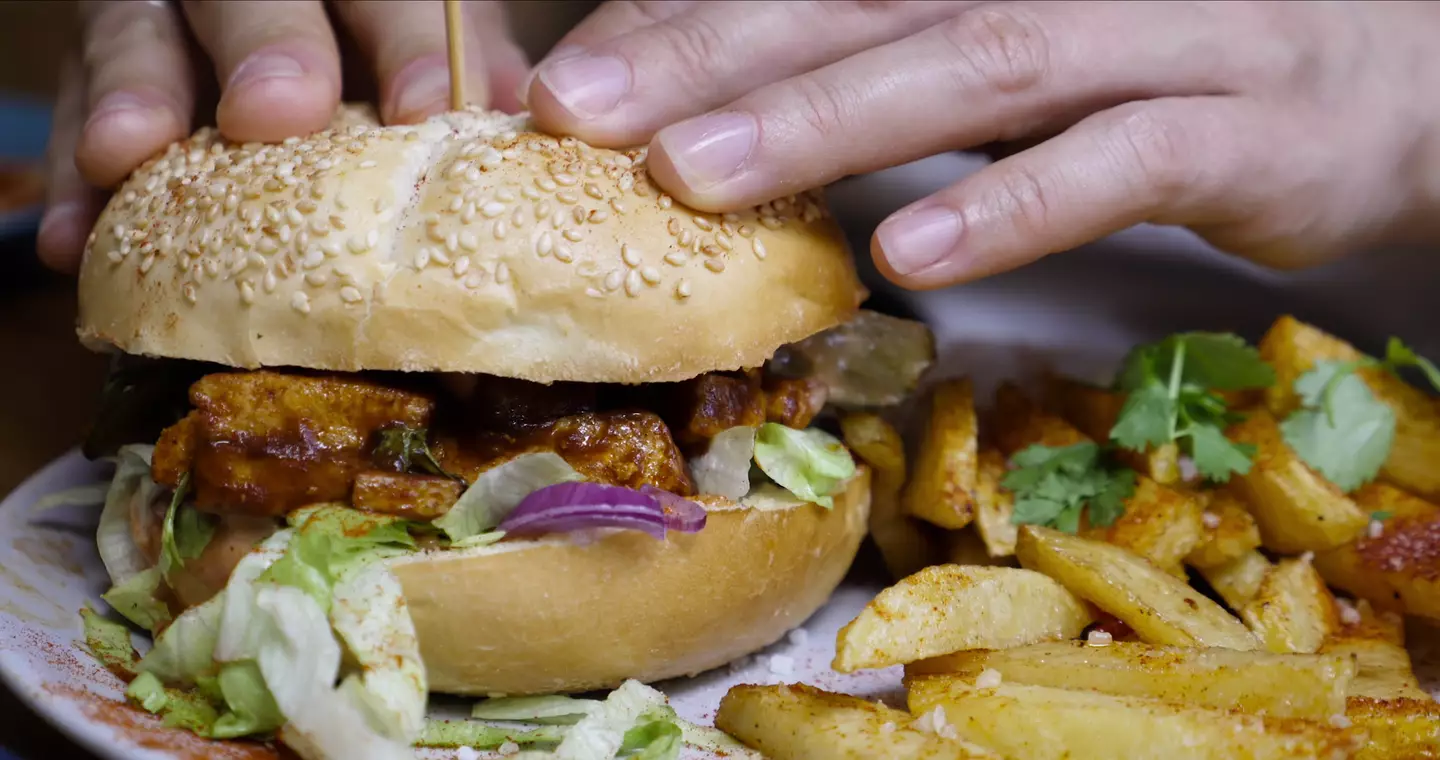
Would you switch to a vegan diet? A bunch of identical twins did. (Netflix)
It’s not the only case where identical twins have tried the ‘meat vs vegan’ diet as twins Hugo and Ross did something similar, but stretched things out for 12 weeks and not just eight.
Hugo, who did the vegan diet, admitted he struggled early on as he got cravings for meat and cheese but once he got used to it he felt like he had higher levels of energy.
His energy levels felt more consistent too, while his brother Ross felt like he went through bursts of energy with his levels then dipping afterwards.
A study on 21 pairs of identical twins found that the person on the vegan diet ended up getting a younger biological age, but Tom Sanders, professor emeritus of Nutrition and Dietetics at King’s College London, responded to the study by saying older vegans were ‘more likely to suffer from muscle loss, low bone density and neurological disorders’.Featured Image Credit: Netflix
Topics: Food And Drink, Health, Netflix, Vegan

Joe Harker
Advert
Advert
Advert
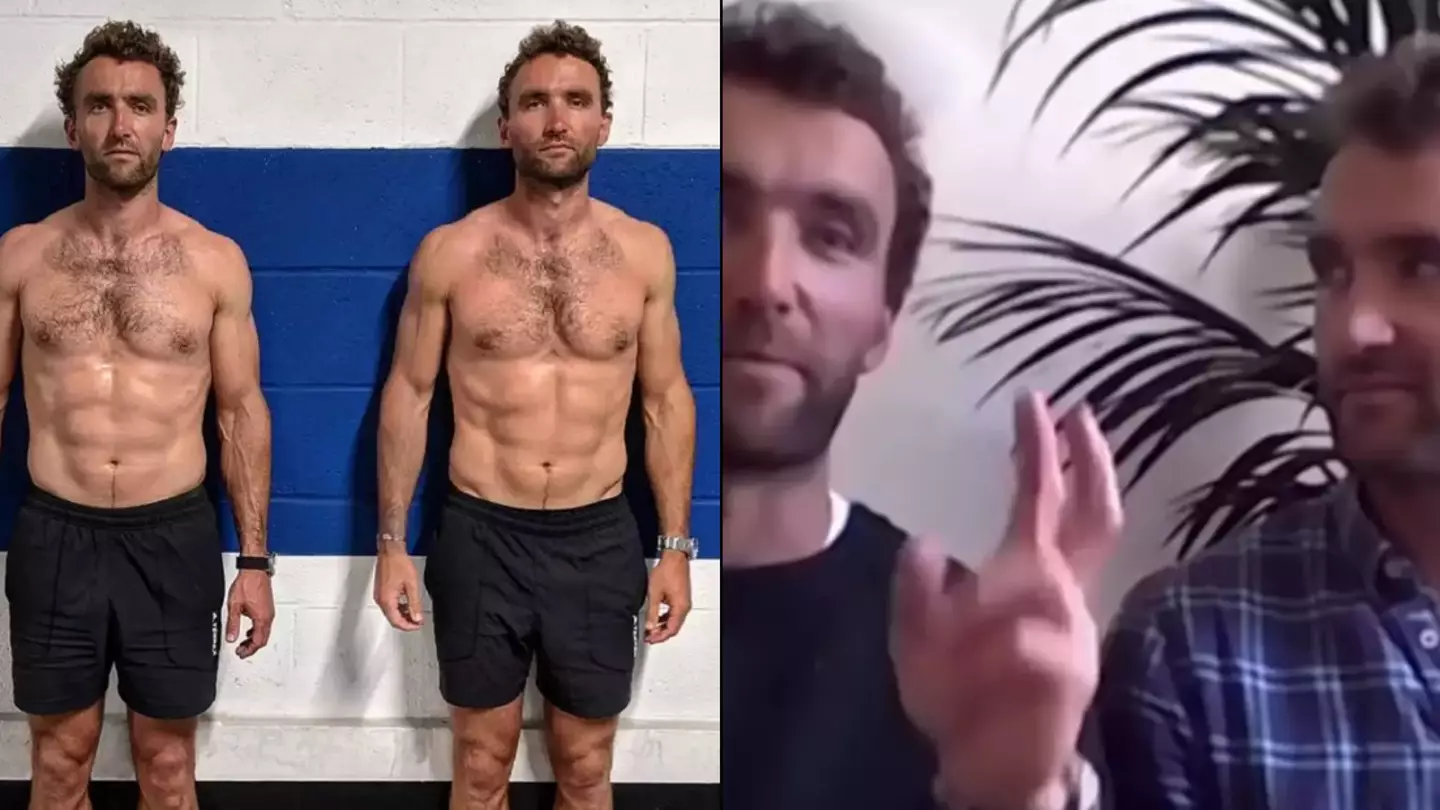
Updated 09:54 16 Dec 2024 GMTPublished 13:12 15 Dec 2024 GMT
Set of identical twins went on separate vegan and meat diets to see how it impacted their bodies
The twins followed the study for 12 weeks

A set of identical twins went on separate vegan and meat diets to see what the impact would be on their bodies.
It’s fair to say there’s often criticism from carnivores that us humans need meat to keep up a healthy balanced diet of foods while others campaign for a meat-free life.
So, to clear up any conspiracy theories and actually get some science involved, a study of these two blokes put it to the test.
Vegan vs meat diet
Credit: BBC
0 seconds of 1 minute, 28 secondsVolume 90%
The study
Back in 2021, Hugo and Ross Turned were filmed by the BBC as they took on opposite diets for 12 weeks.
Hugo was to follow a plant-based diet, while Ross was allowed to eat meat, dairy and fish.
Conducted by King’s College London, the study had them consuming the same amount of calories a day as well as following the same gym routine.
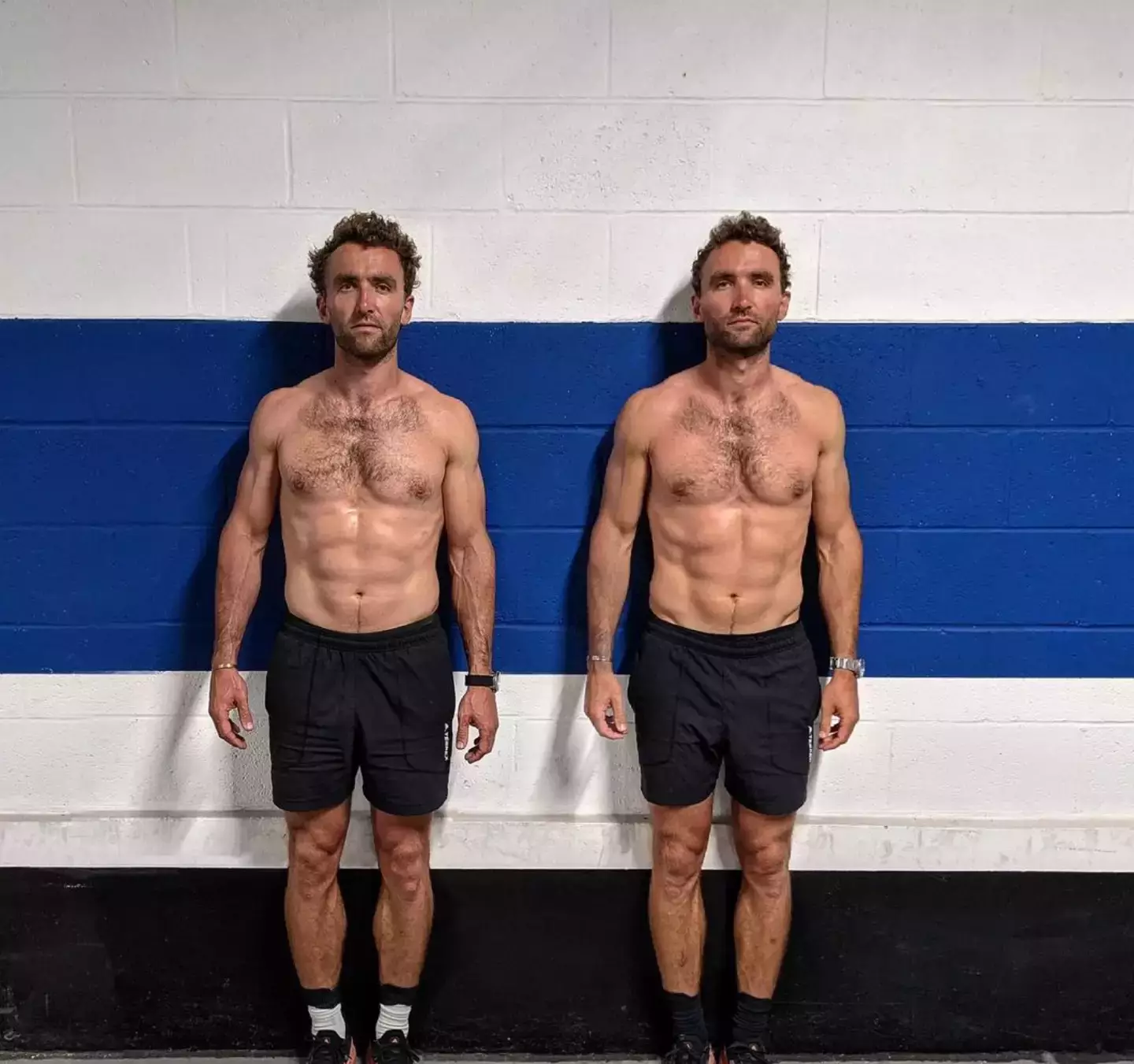
One went vegan while the other followed an omnivore diet. (Instagram/@theturnertwiins)
“I felt like I had more energy”
During the short film, Hugo explained: “I was on the vegan diet and it really does take a hit on your body.
“I think the first couple of weeks it was really craving and wanting meat and dairy and cheese. I love cheese.
“I was now having to eat fruit and nuts and alternatives that didn’t have any dairy in them – and so that meant I was eating a lot more wholesome food, which meant that my sugar levels were a lot satiated during the day.
“I felt like I had more energy.”
While Ross said his meat-eating journey was up-and-down, especially when it came to the gym.
He said he often felt ‘very energetic’ but at other times would experience ‘huge lulls’.
Hugo’s plant-based diet meant his energy levels remained pretty much consistent throughout the entire process.
However, he found the diversity of his gut bacteria ‘severely’ dropped, while his brother’s stayed the same meaning he was less likely to pick up illnesses.
One thing Ross noticed was how much processed food he was eating when he peered at what his brother’s vegan meals looked like.
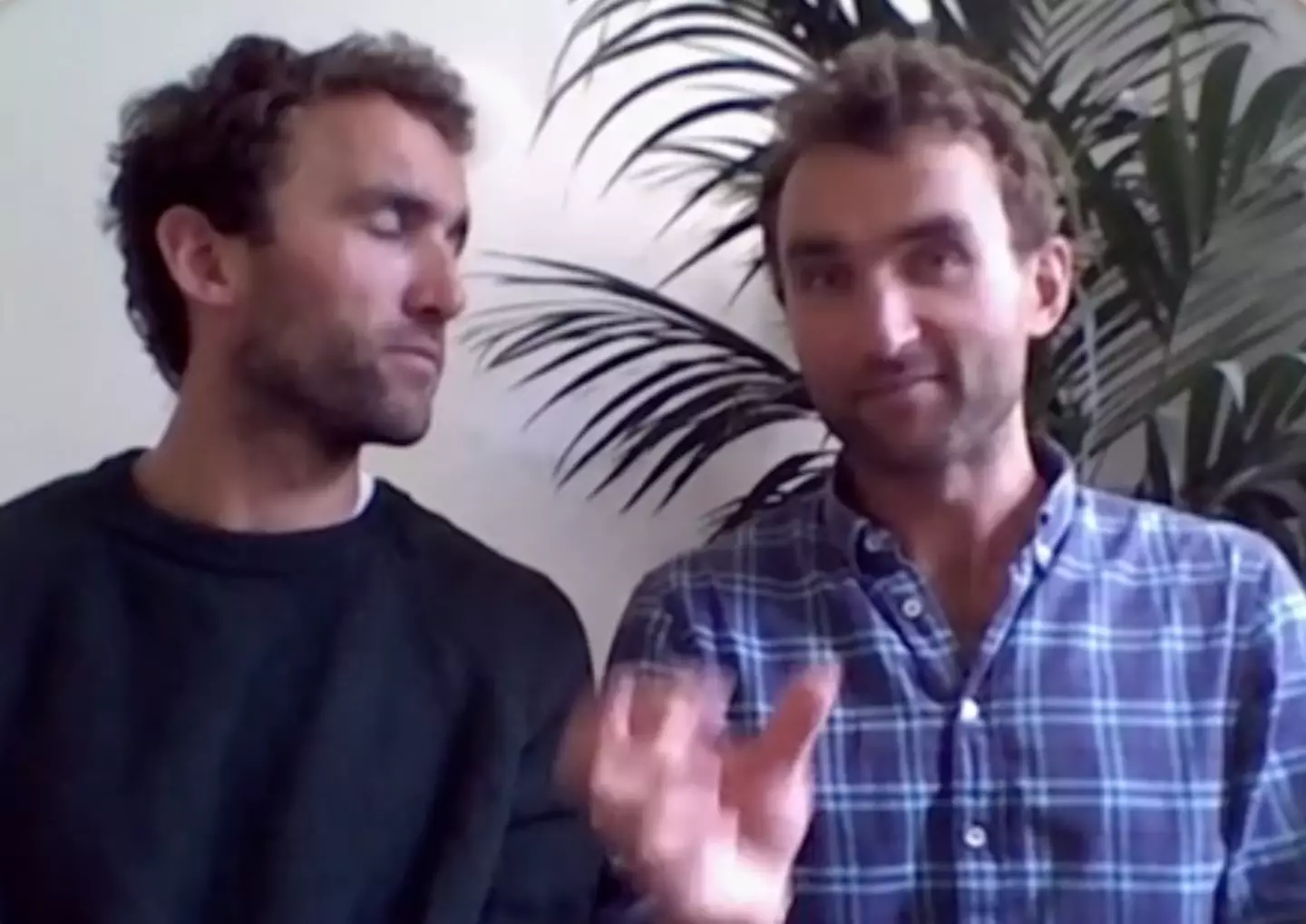
There wasn’t a ‘huge difference’. (BBC)
The results
A little disappointingly perhaps, it seemed as though there were no ground-breaking results or differences at the end of the study.
One thing Hugo did see was his cholesterol levels drop ‘off the scale’, while also losing weight and boosting his resistance to type two diabetes.
According to Insider, at the start of the diet, Hugo weighed 185 pounds and had 13 percent body fat.
By the end of the 12 weeks, he weighed 181 pounds and dropped to 12 percent body fat.
In comparison, Ross also had 13 percent body fat at the start, but he put on 10 pounds of muscle, and also gained fat, bringing his end body fat percentage up to 15 percent and his weight to 189 pounds.Featured Image Credit: @theturnertwiins/Instagram/BBC
Topics: Science, BBC, Vegan, Food And Drink

Jess Battison
Advert
Advert
Advert
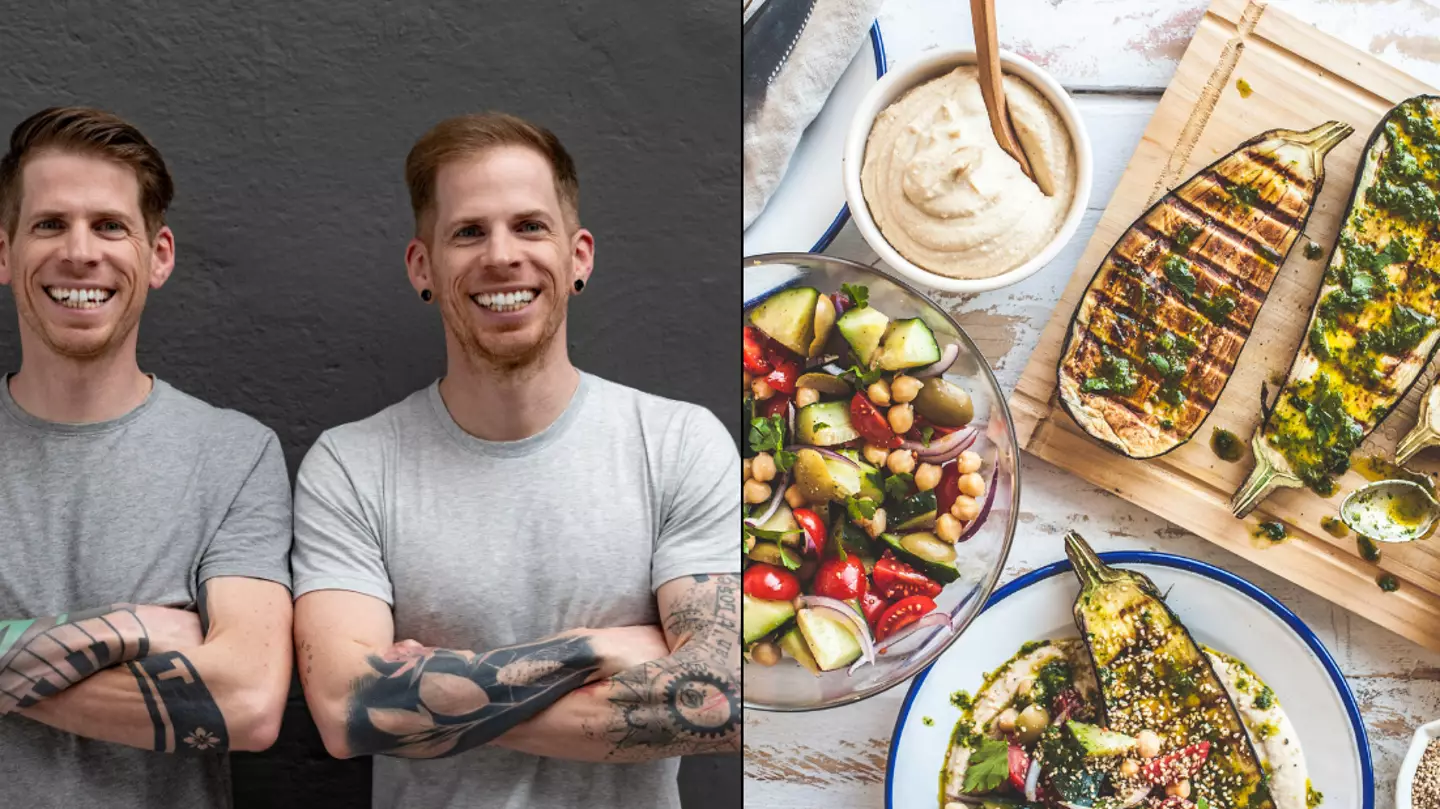
Updated 11:27 16 Dec 2024 GMTPublished 09:19 16 Dec 2024 GMT
Researchers reveal shocking results after 21 twins go on separate vegan and meat diets
If you’ve been thinking about cutting out animal products, you’ll want to read this

Researchers have revealed the surprising results of a study which saw 21 twins go on separate vegan and meat diets for eight weeks.
Depending on who you speak to, pretty much everything you eat has negative connotations these days.
I mean, most of us know fast food, particularly fried food, is not good for you.
It’s often high in saturated fat, trans fats and calories, which can increase the risk of heart disease, obesity and other health issues.
Vegan vs meat diet
Credit: BBC
0 seconds of 1 minute, 28 secondsVolume 90%
But it’s the other stuff, like eggs, which some people say are a healthy and natural source of protein, while others say eggs are bad for your cholesterol.
Again, fruits are considered to be a healthy option, but some argue they contain too much sugar.
Next they are going to start saying water is bad for you, and actually, they already are.
One debate that’s come to fruition in recent years, however, is the veganism vs meat diet.
Netflix’s Cowspiracy documentary is something that sparked off the conversation when it hit screens in 2015.
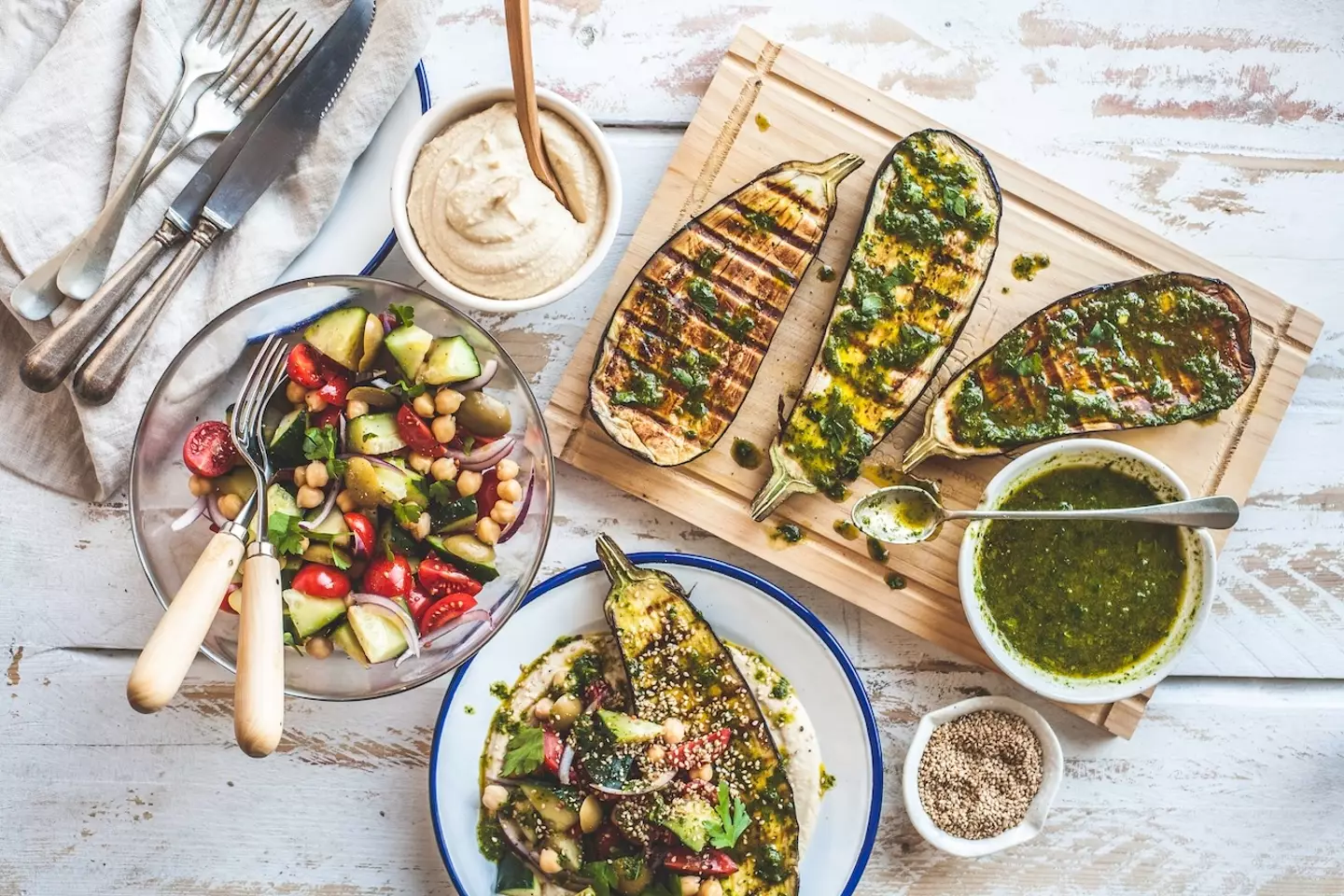
The study showed surprising results (Getty Stock Images)
Though one study explored this even further by involving 21 pairs of identical adult twins, as half were asked to go vegan, and half were asked to eat meat.
Vegan vs meat: How did the study work?
To make things as fair as possible, the participants had food prepared for them for the first four weeks, and for the second four weeks they ate meals they cooked themselves.
The average age of participants was 40 and their average BMI was at 26 kilos per metres squared.
Notably, there were more women involved in the study, 77 percent.
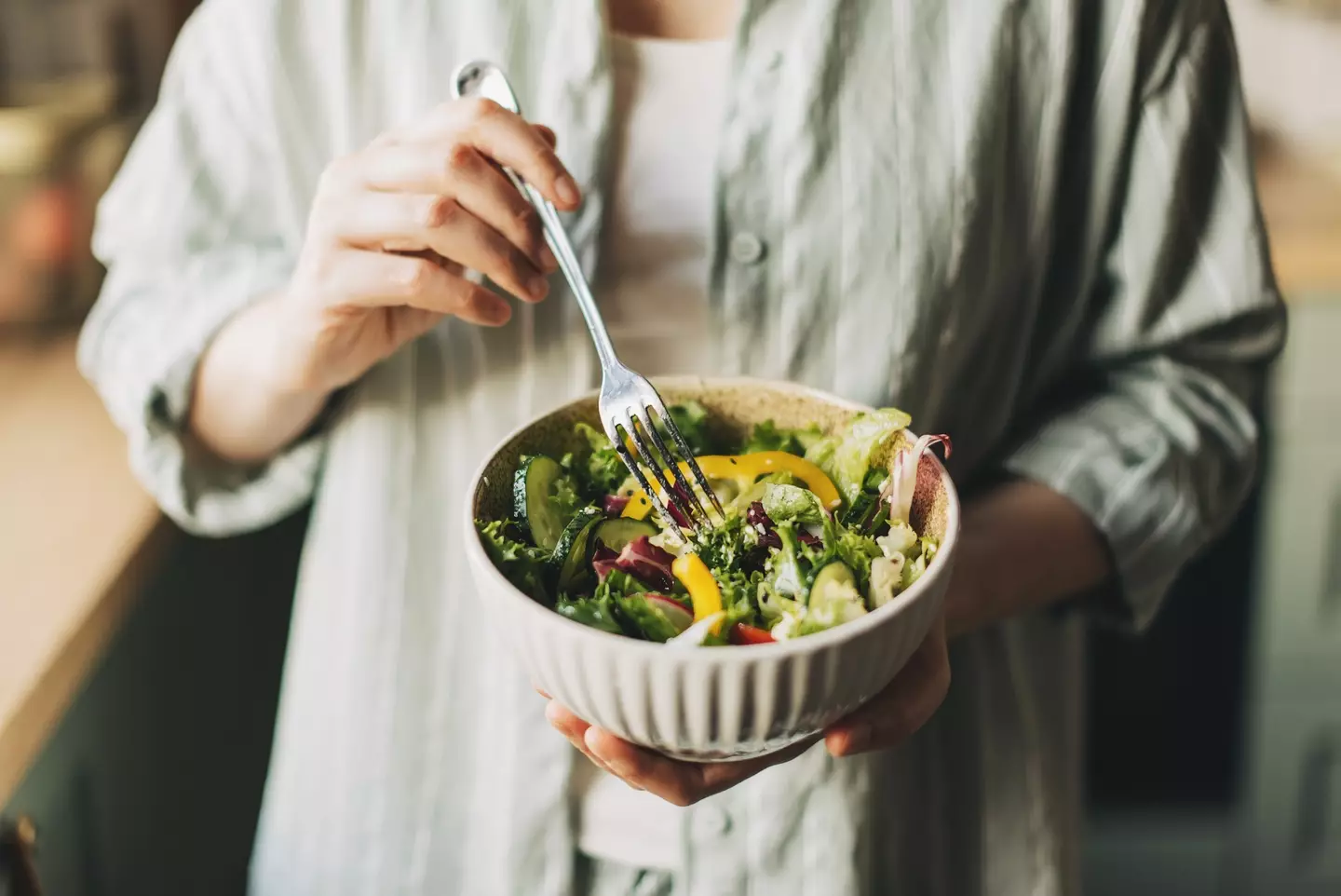
The results may surprise you (Getty stock photo)
The results
After eight weeks, the study – published in the journal BMC Medicine – revealed that the vegans, on average, lost more weight (2kg) and found a decrease in the estimates of biological age.
Commenting on the findings, Professor Christopher Gardner, of Stanford University, California, said: “We also observed decreases in the ages of the heart, hormone, liver, and inflammatory and metabolic systems of participants who ate a vegan, but not an omnivorous diet, for eight weeks.”
That being said, Tom Sanders, professor emeritus of Nutrition and Dietetics at King’s College London, who was not involved in the study, claimed: “Although observational studies indicate that vegan diets may have favourable effects on health in middle age (such as a lower risk of cardiovascular disease and type 2 diabetes), this is not the case in older vegans who seem more likely to suffer from muscle loss, low bone density and neurological disorders which have a significant impact on the quality of life.
“Indeed, life expectancy does not differ in vegans compared with those who select mixed diets.”Featured Image Credit: Getty Stock Images
Topics: Food And Drink, Health

Anish Vij
Advert
Advert
Advert
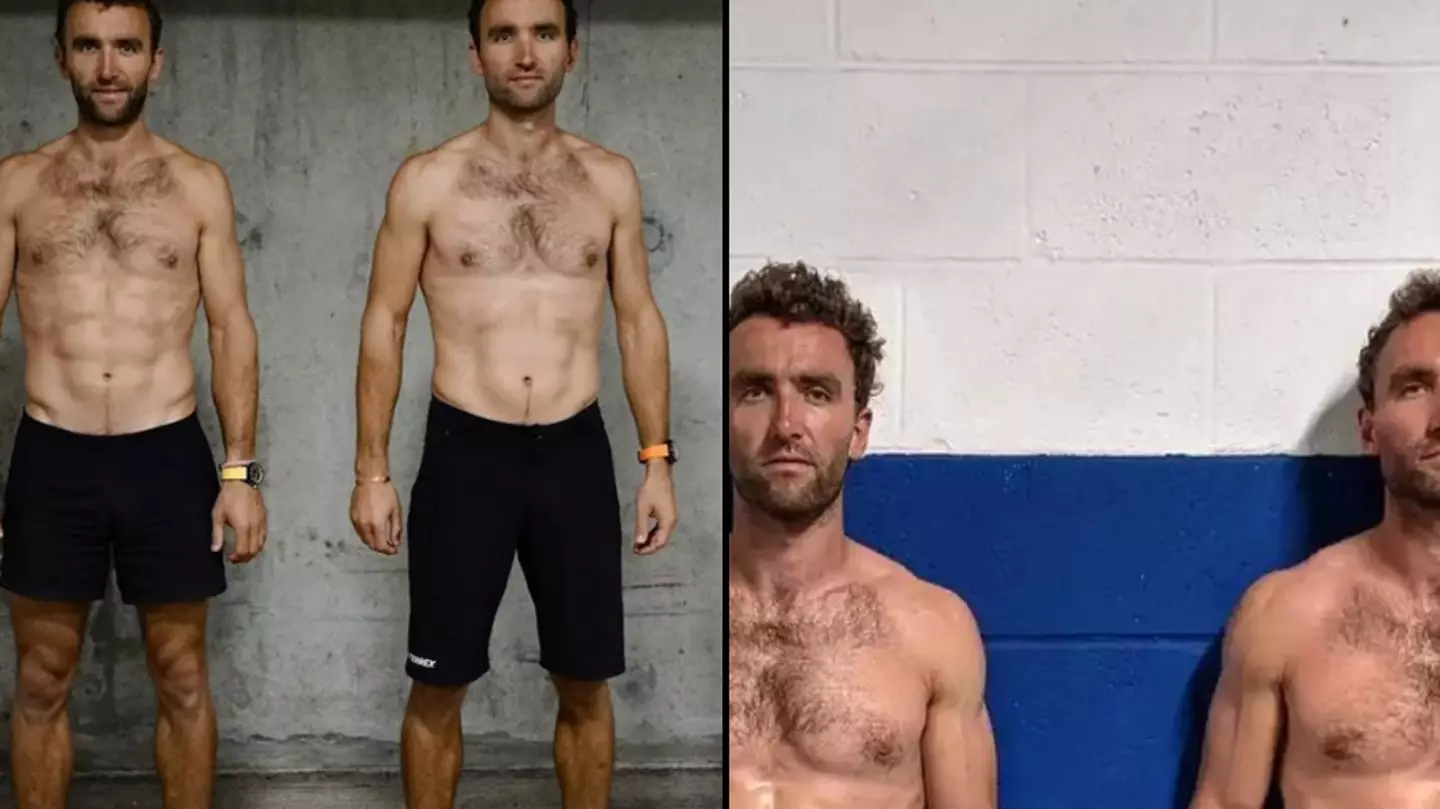
Updated 09:30 31 Mar 2024 GMT+1Published 16:31 30 Mar 2024 GMT
Set of identical twins went on separate vegan and meat diets to see if it would make a difference
Identical twins were challenged to go on polar opposite diets to see if it would have an impact on their body

Identical twins were challenged to go on polar opposite diets to see if it would have an impact on their body.
There is often an assumption that people need to eat meat in order to have a balanced diet; others campaign for people to eat totally meat-free.
Well this study puts both of those to the test.
Vegan vs meat diet
Credit: BBC
0 seconds of 1 minute, 28 secondsVolume 90%
The study
In 2021, the BBC filmed a set of identical twins taking on two different diets for a 12-week period.
One would eat a plant-based diet, ditching meat and dairy, and the other eating an omnivore diet, consisting of meat, dairy and fish.
The twins were Hugo and Ross Turner and the study was conducted by King’s College London.
The diets consisted of the same amount of calories each per day, and also the same gym workouts.
The BBC documented the process, and the results were definitely interesting.
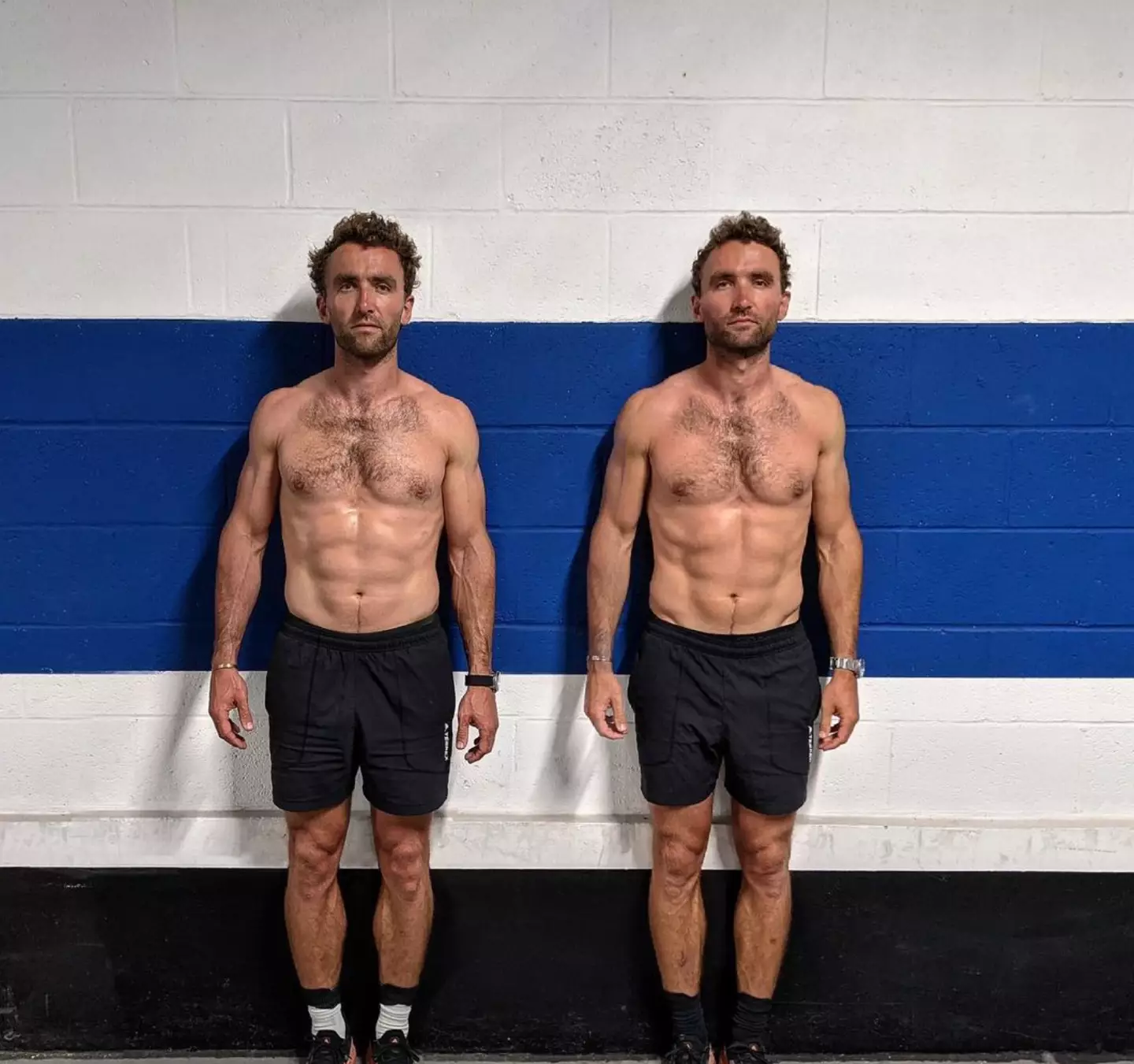
Instagram/@theturnertwiins
“I felt like I had more energy”
Hugo said in the short film: “I was on the vegan diet and it really does take a hit on your body.
“I think the first couple of weeks it was really craving and wanting meat and dairy and cheese. I love cheese.
“I was now having to eat fruit and nuts and alternatives that didn’t have any dairy in them – and so that meant I was eating a lot more wholesome food, which meant that my sugar levels were a lot satiated during the day.
“I felt like I had more energy.”
The other twin, Ross, explained that his meat-eating journey was a little more up and down, especially in regards to the gym.
He said that he would often feel ‘very energetic’ and then other times he would experience ‘huge lulls’.
Hugo’s plant-based diet meant that his energy levels remained pretty much consistent throughout the entire process.
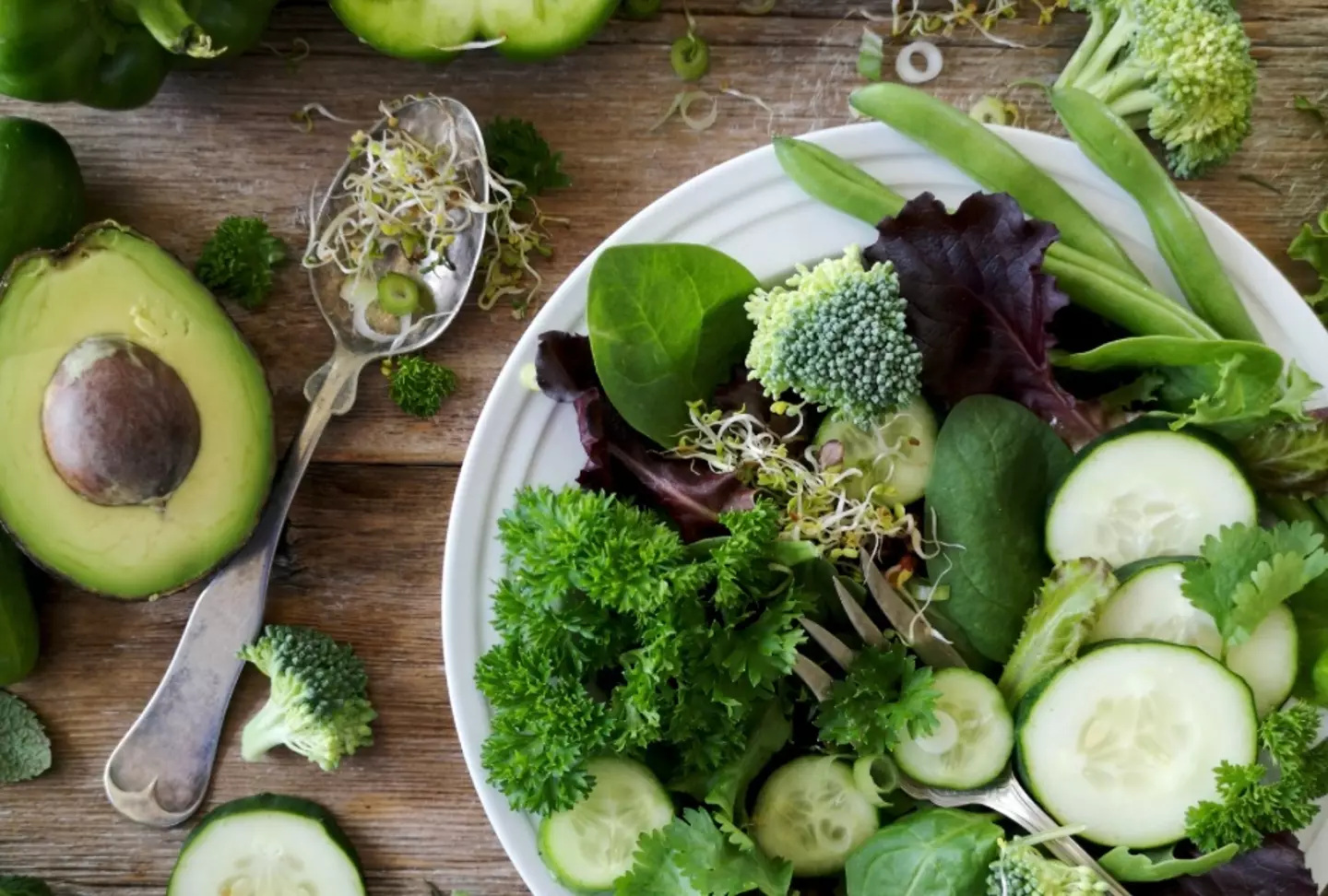
Nadine Primeau on Unsplash.
However, he found that the diversity of his gut bacteria ‘severely’ dropped, while his brothers stayed the same, meaning he was much less likely to pick up illnesses.
One thing Ross noticed was how much processed food he was eating when he peered at what his brother’s vegan meals looked like.
The results of the study
At the end of the study, it seemed as though there were no ground-breaking results or differences.
One thing Hugo did see was his cholesterol levels drop ‘off the scale’, while also losing weight and boosting his resistance to type two diabetes.
According to Insider, at the start of the diet, Hugo weighed 185 pounds and had 13 percent body fat.
By the end of the 12 weeks, he weighed 181 pounds and dropped to 12 percent body fat.
In comparison, his brother also had 13 percent body fat at the start, but he put on 10 pounds of muscle, and also gained fat, bringing his end body fat percentage up to 15 percent and his weight to 189 pounds.Featured Image Credit: BBC/Instagram/@theturnertwiins
Topics: Vegan, Food And Drink, Health

Mia Williams
Advert
Advert
Advert

Updated 15:35 7 Jan 2024 GMTPublished 15:32 7 Jan 2024 GMT
‘Mind-bogglingly good’ Netflix documentary experimenting on twins has people ‘rethinking their whole life’
This four-part documentary series has viewers wanting to turn vegan left, right and centre

‘Veganuary’ has become a staple New Year’s trend over the last few years, with more and more people wanting to decrease the amount of meat and boost the amount of veggies in their diets.
If you were tempted by a plant-based lifestyle in 2024 but didn’t reckon you’d be able to resist a fish and chip supper or a meatalicious pizza, Netflix has launched a brand new vegan-friendly experimental series that has already changed the lives of millions of viewers.
‘Mind-bogglingly good’ Netflix documentary experimenting on twins
Credit: Netflix
0 seconds of 2 minutes, 18 secondsVolume 90%
This four-part series sees several sets of American identical twins changing their diets and exercise routines for eight weeks in a science experiment designed to explore how certain foods impact the body.
In the show – which was released just in time for Veganuary this year, one member of each of the four pairs follows an omnivorous diet – continuing to eat meat, fish, dairy and vegetables.
Their identical sibling alternatively follows a totally animal-free diet in this series, which provides a rundown of the main benefits to this vegan diet.
That’s because, within a matter of weeks, those participants following the plant-based diet saw visceral fat – the harmful kind which surrounds the organs – had reduced significantly.
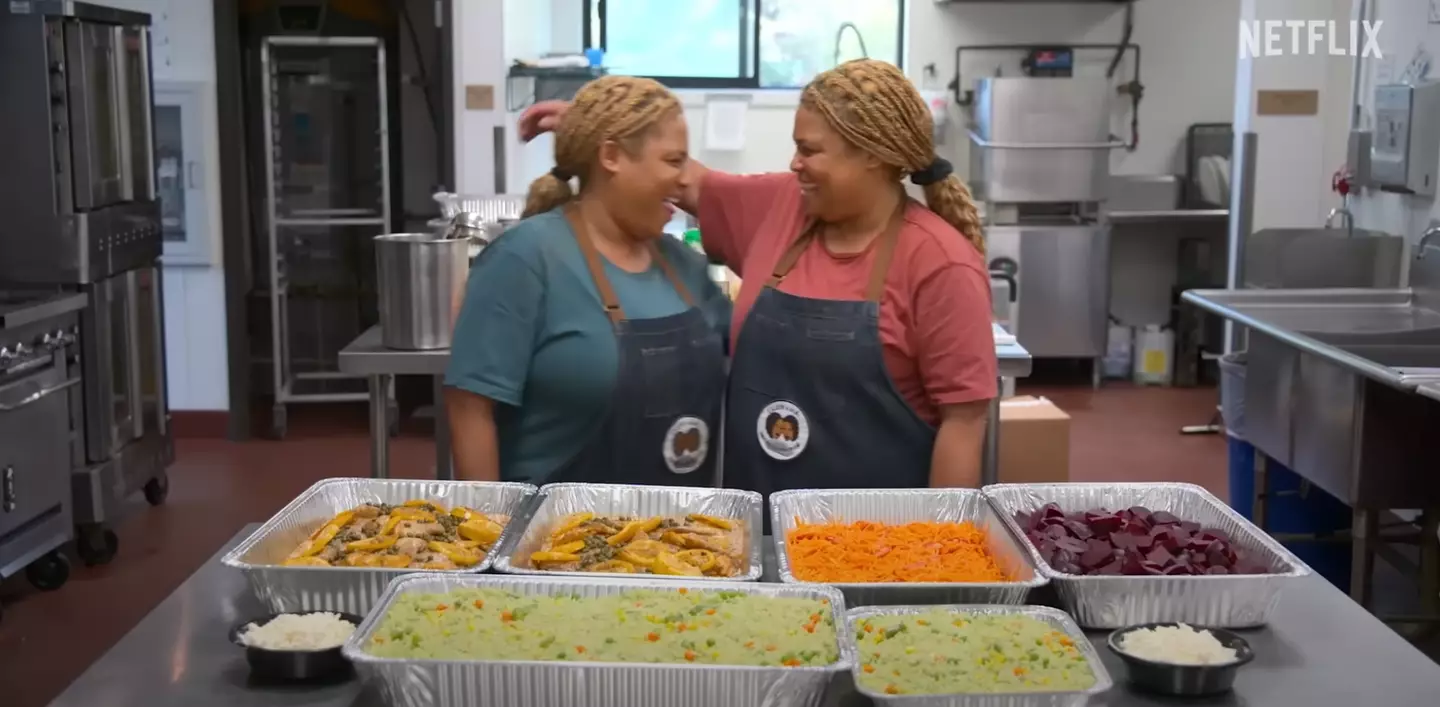
Netflix
Meanwhile, those continuing to eat meat and fish experienced a minute increase in their body’s visceral fat.
These siblings were also found to have a significantly lower LDL (‘bad’) cholesterol, compared to their meat-eating other-halves.
Though both twins in each set that took part in this impressive experiment lost weight – due to the show’s focus on the benefits of exercise, the vegan siblings lost, on average, 4.2 pounds (1.9kg) more than the omnivores.
But what is this ground-breaking new show, and why has it caused such an impact to the worlds of lifestyle and diet?
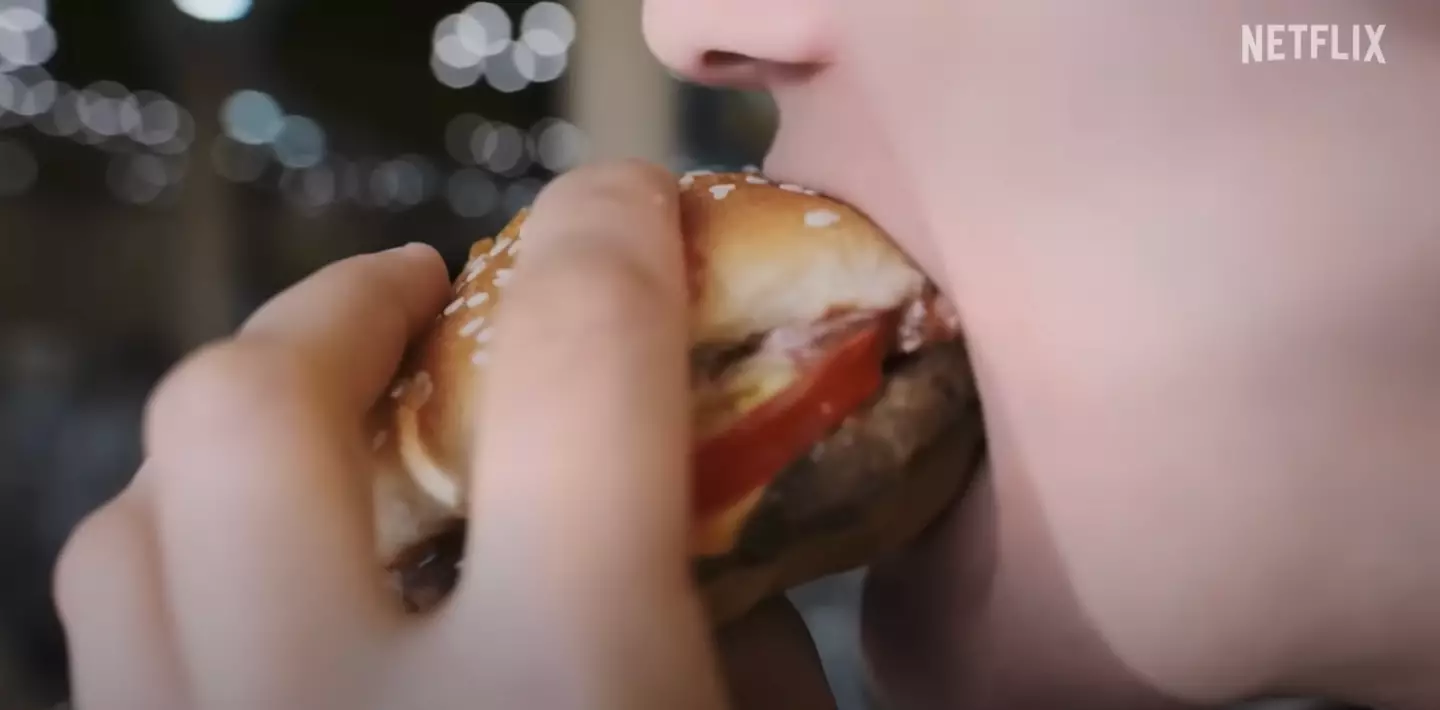
Netflix
We are, of course, talking about You Are What You Eat: The Twin Experiment, which has been dubbed by many viewers as one of the most influential forms of persuasion to join those already enjoying a healthy vegan diet.
“Watching You Are What You Eat on Netflix… and am now seriously considering eating little to no red meat from now on,” one viewer penned on X.
Another wrote: “You Are What You Eat on Netflix was mind-bogglingly good. Like actually making me want to consider going fully vegan.”
“Have y’all watched You Are What You Eat on Netflix??” a third asked. “Ngl after seeing the background on these farms who supply the beef and chicken, etc I’m much more open to trying a vegan diet.”

Netflix
A fourth went on to admit: “Watching You Are What You Eat on Netflix and it’s making me rethink my whole life. I’m so grateful we found a local farm to get our meat and produce from. It’s all so scary.”
While someone else confessed: “Watching You Are What You Eat on Netflix and I suddenly am about to be vegan.”
You Are What You Eat: The Twin Experiment is available to stream on Netflix now.